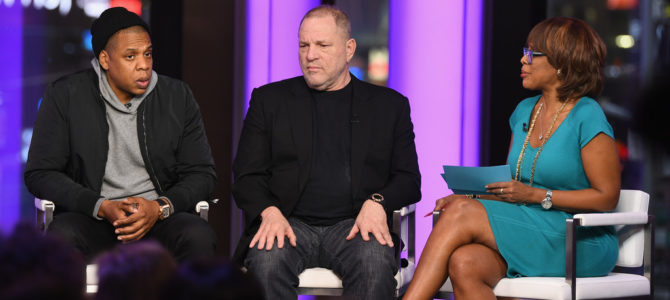Harvey Weinstein’s fall from grace is both a triumph and failure of the media: A triumph in that reporters completed the formidable task of breaking news about his serious misdeeds; a failure in that it took way too long, and not for virtuous reasons.
Certainly the journalists responsible for those reports on Weinstein’s sins, published by the New York Times and New Yorker in early Oct. 2017, deserve applause for their work. That applause, however, has drowned out an important conversation about why Weinstein’s misconduct stayed out of the press for years. The answer is much less flattering.
By many reports, some journalists attempted to break the news of Weinstein’s behavior in the decades preceding Me Too. The mogul, unfortunately, developed methods of strategically leveraging his power to make those efforts exceedingly difficult—silencing and intimidating sources, leveling legal threats against journalists. In 2017, Rebecca Traister wrote about an Election Night party in 2000 at which Weinstein allegedly called her a “c-nt” and dragged her colleague onto Sixth Avenue in a headlock. Photographs were taken but, mysteriously, no pictures ever surfaced.
“Such was the power of Harvey Weinstein in 2000 that despite the dozens of camera flashes that went off on that sidewalk that night, capturing the sight of an enormously famous film executive trying to pound in the head of a young newspaper reporter, I have never once seen a photo,” Traister wrote.
She added, “Back then, Harvey could spin — or suppress — anything; there were so many journalists on his payroll, working as consultants on movie projects, or as screenwriters, or for his magazine.” By that account, Weinstein sought to effectively purchase the silence of the press. Combined with his calculated power plays, it seems to have worked for two decades.
In 2017, New York Times media writer Jim Rutenberg echoed Traister, explaining why the press “enable[d]” Weinstein. “The real story didn’t surface until now because too many people in the intertwined news and entertainment industries had too much to gain from Mr. Weinstein for too long,” Rutenberg wrote. “Across a run of more than 30 years, he had the power to mint stars, to launch careers, to feed the ever-famished content beast.”
Consider the critical case of NBC, which Ronan Farrow credibly claims was pressured by Weinstein from publishing the exposé he ultimately ran in The New Yorker. (Farrow’s credibility was damaged by his reporting on Justice Brett Kavanaugh, but I say “credibly” in this case because NBC’s denials don’t add up.)
According to Farrow, Weinstein embarked on an extensive campaign to persuade the top brass at NBC out of pursuing the story about him, calling executives, flattering them, downplaying the allegations, even sending Grey Goose when he thought he had succeeded. “If I can get a network to kill a story, how hard can a newspaper be?” Weinstein reportedly bragged.
Farrow further reported that Weinstein sought to leverage his knowledge of Matt Lauer’s alleged sexual misconduct to ensure NBC dropped the story. Again, Farrow’s piece ultimately ran in The New Yorker, even including a damning audio clip NBC acknowledges he brought to them first.
All this is to say that while the press deserves credit for ultimately exposing Weinstein, the story of his downfall is also a story of media complicity. For the sake of victims, past, present, and future, that should not be forgotten.









